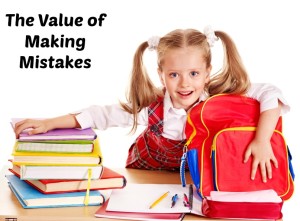I’m going to tell you the story of Kathleen – she is not real, but she represents a typical child’s experience in school and how it shapes our thinking.
Beginning in Jr. Kindergarten, Kathleen is evaluated. Her teacher comments to her parents about the things Kathy needs to do differently and better in order to ‘succeed’. They are also told of the things she does well. Ways to help Kathy develop are given to the parents with the expectation that they will help her at home, too.
 As the years pass, Kathy does well in school. Her parents have taught her the tools of success – how to get along with people and how to study hard and get good marks.
As the years pass, Kathy does well in school. Her parents have taught her the tools of success – how to get along with people and how to study hard and get good marks.
As a young child, this doesn’t mean much to her… she likes the praise from her family so continues to do well so that she will get that praise. But over time, being a good student becomes an obsession to become a great student. It’s not good enough to do well; she now has to do very well.
By the time she hits high school, she needs to be the best. And she takes this right into athletic programs as well as committees and clubs she belongs to. She is a natural leader and steps to the front of the line to lead different things because she is quite confident in her abilities and she wants to be the best – so leading is one way to ensure she IS the best.
The one thing she is not good at is making mistakes. In fact, she makes very few of them. In her mind she is a ‘super-star’ and that keeps her self-esteem high. So when she does make mistakes, she takes it really hard. She becomes quite critical and hard on herself. She punishes herself by having to do more and extra in order to improve. She withdraws rewards until she fixes things.
By the time she gets to university, most of her self-esteem is coming from her successes. She has learned to only do the things in life that she is good at and she completely ignores the stuff where she can’t perform in the same way.
Her life is now all about success and she pursues her career in much the same fashion. But in her career, she becomes part of a team that critiques itself and its members regularly. Debriefing what they do and how they do it is a critical part of their pathway of success because they are always tweaking and improving things.
Kathy is unable to stand it. Every piece of feedback is like a knife in her back. Going to work becomes grueling because her self-esteem gets destroyed every single day. And people are so open with the things she does ‘wrong’ that work becomes completely demoralizing.
Kathy suffers from an over-active focus on success and an under-active appreciation for mistakes and failure – carefully conditioned into her by our school system that only celebrates the achievements. School places little to no emphasis on the value of mistakes and failure and the things we learn from them.
Having been a teacher for 12 years, I can now see the error in our logic. We have created generations of mistake-phobic people who have no clue how to deal with failure. Further, we have destroyed self-esteem in those who don’t succeed easily. In destroying their self-esteem, we destroy their innate tendency to use mistakes to grow.
I’ve been reading a book recently, How We Decide by Jonah Lehrer, that gives insight into the limitation this poses. In studying the brain and how it functions best, scientists are realizing that those who learn by taking chances and making mistakes build a much stronger ability to be decisive, take chances and know what will work.
People who step back from failure with the intention of understanding what they could have done differently and better will build a very strong and capable neural net that will store all of the things they shouldn’t do, which will become the intuitive or gut feeling that will drive successful behaviour.
If all we reward is success, we never build this inner confidence. We don’t know how to learn from failure. We don’t face all the things that don’t work so that we can develop the awareness of what does work.
Think about the school system – kids do Math problems and they are either right or wrong. But do they stop to debrief where they went wrong and why? Is this ‘debriefing’ component accentuated as much as the ‘right or wrong’ component?
I was a teacher – I know the answer to that. I taught high school. By the time kids got to Grade 9, they already had an opinion about their ability to succeed based on all of the rights and the wrongs they had experienced and how capable they felt in getting things right.
Studies are beginning to show that spending the time to figure out how to ‘get it right’ – making the mistakes, critiquing performance, focusing on getting better –are the ‘valuable’ things to be learning because it creates a platform of confidence in the brain that will generalize to all new or learning situations.
It teaches people how to learn. It teaches people that improvement is continuous – that there is not just success, but a continuum of growth. That lesson is truly valuable.
It made me really think about things. How often in a day do I default to the idea ‘I have to succeed’ and completely miss the opportunity to take a risk and learn from it?
How many times do I not debrief something and not gain value from self-criticism designed to grow myself?
How often do I not allow people to give me feedback in my need to feel successful?
What opportunity for growth do I miss because I, too, have been conditioned to self-esteem that comes from success?
And isn’t it a shame that kids enter a school system and are taught this distorted sense of self-esteem?
What do you think?


 Follow
Follow